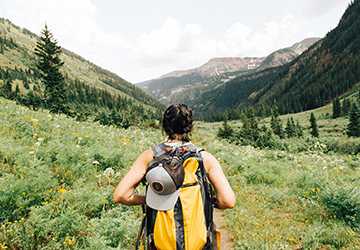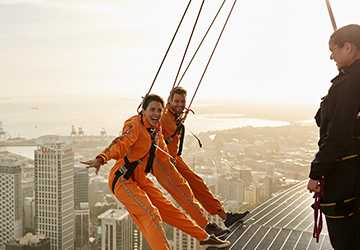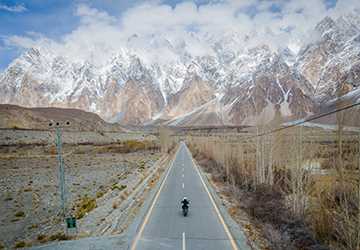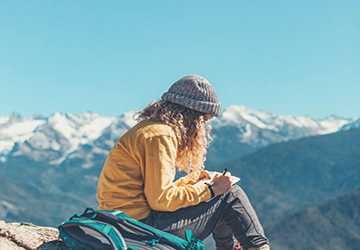How to Plan the Ultimate Adventure Travel Experience
Going on an adventure is more than just a vacation; It's an exhilarating quest for adrenaline, a thirst for discovery and a desire to transcend personal boundaries. Whether you dream of scaling towering peaks, conquering raging rapids, or hiking through remote landscapes, planning the ultimate adventure travel experience requires forethought, careful planning, and a sense of adventure. This comprehensive guide covers the key elements to help you plan an unforgettable adventure and ensure every moment is filled with excitement and discovery.

1. Define Your Adventure Style
A. Identify your passion:
The first step to planning the ultimate adventure is identifying your passion. What activities spark your passion? Whether it's rock climbing, hiking, scuba diving or a combination of these activities, knowing your interests will guide your choice of adventure.
B. Solo or group adventure:
Decide whether you prefer the solitude of a solo adventure or the camaraderie of a group experience. Some activities, such as hiking, are often conducted in groups to promote community and shared accomplishments.
2. Do Your Research and Choose Your Destination
A. Seasonal and climate considerations:
Research the seasons and climate of potential adventure destinations. Certain activities are best done at specific times of the year. Therefore, understanding the local climate will make the experience safer and more enjoyable.
B. Difficulty level:
Evaluate the difficulty of the activities you choose in different travel destinations. Be honest about your abilities and choose a destination that offers a challenge within your means while providing the excitement you're looking for.
C. Cultural and Natural Highlights:
Go beyond the adventure aspect and consider your destination's cultural and natural highlights. The comprehensive experience combines exciting activities with the opportunity to immerse yourself in local culture and experience stunning scenery.
3. Create A Budget and Plan Your Finances
A. Adventure Tour Fees:
Adventure travel often requires special equipment, permits, guides, and sometimes travel to remote locations. Research and estimate the costs associated with your adventure and ensure your budget matches your desires.
B. Additional cost budget:
Consider additional costs such as travel insurance, visas, vaccinations and an emergency fund. Budget flexibility takes into account unforeseen expenses that may arise during your adventure.
C. Evaluate accommodation options:
Depending on the nature of your adventure, you may need accommodation in a remote area. Research and plan accommodations that best suit your adventure, whether camping under the stars, staying in a mountain cabin or booking an eco-friendly hotel.
4. Physical Fitness and Skill Preparation
A. Assess physical needs:
Understand the physical requirements of your chosen adventure and assess your current fitness level. Develop a training plan to build strength, endurance and skills required for the activity.
B. Skill-building activities:
Attend skill-building activities relevant to your adventure, such as B. Rock climbing lessons, scuba diving lessons, or wilderness survival training. Being prepared in advance can increase safety and confidence during the actual adventure.
C. Consult professionals:
Consult an adventure professional or certified guide to assess your preparedness; they can provide valuable insights, recommend training programs, and ensure you have the skills to have a safe experience.
5. Obtain Necessary Gear and Equipment
A. Create an equipment inventory:
Put together a comprehensive gear list for your adventure. Be sure to bring essentials such as suitable shoes, clothing, safety gear, and any specialized equipment you may need for your chosen activity.
B. Invest in quality equipment:
Invest in quality equipment that meets safety standards and is suitable for the environmental conditions of your adventure. Well-maintained equipment improves your comfort and safety throughout your trip.
C. Test and familiarize yourself with:
Test and familiarize yourself with all equipment before venturing out. Setting up your camping gear, practising your navigation equipment, and ensuring everything works as expected.
6. Health and Safety Preparations
A. Medical Verification:
Schedule a physical to ensure you're in good health for your adventure. Discuss your travel plans and address any pre-existing medical conditions with a healthcare professional.

B. Vaccination and Medication:
Learn about and get the vaccinations required for your destination. Prepare a comprehensive medical kit that contains essential medications, first aid supplies, and prescription medications.
C. Emergency plan:
Develop an emergency plan, including a communication strategy and contact information for local emergency services. Share your itinerary with trusted people and create a check-in process.
7. Responsible and Sustainable Travel Practices
A. Respect local culture and environment:
Become familiar with the local culture and environment of your destination. Respect local customs, minimize environmental impact and support responsible tourism practices.
B. Follow the leave no trace principle:
Follow the "leave no trace" principle to minimize the impact on natural spaces. Dispose of waste responsibly, using designated routes and leaving the environment untouched.
C. Support local communities:
Choose operators and services that prioritize sustainable and ethical practices. Support local communities by supporting local businesses, engaging local leaders and participating in community initiatives.
8. Logistics And Transportation Plan
A. Transportation to and within the destination:
Find out how to get to and around your destination. Consider offering flights, buses, trains or local guides to remote areas.
B. Transshipment and Logistics Plan:
Arrange transfers between locations and plan the logistics of your adventure. Ensure you have a detailed itinerary and transportation arrangements for multiple days of hiking or biking.
C. Check travel restrictions and authorizations:
Stay current on your destination's travel restrictions, visa requirements and required permits. Obtain all necessary documents promptly to avoid last-minute complications.
9. Mental Preparation and Mentality
A. Flexibility of use:
Taking risks leads to unexpected things. Embrace the uncertainty and unpredictability of the journey as these factors increase excitement and fulfilment.
B. Positive imagination:
Cultivate a positive attitude by imagining successful outcomes. Mental preparation is as necessary as physical preparation, and a positive attitude can help you cope with challenges.
C. Enjoy the journey:
With all the excitement and challenges, remember to enjoy the journey itself. Take the time to admire the scenery, mingle with other adventurers, and enjoy the unique experiences that come with it.
10. Document Your Adventures
A. Capture memories:
Bring a camera, journal or travel blog to document your adventures. Capture the breathtaking scenery, camaraderie with your travel companions, and personal accomplishments.

B. Reflect and Share:
Take a moment to reflect on your adventures. Share your stories and insights with friends, family or the wider travel community. Your experience can inspire others to embark on an adventure.
All in all, planning the ultimate adventure travel experience is a careful yet exciting process. From choosing the right destination to learning the necessary skills, every step contributes to the anticipation and success of your trip.


